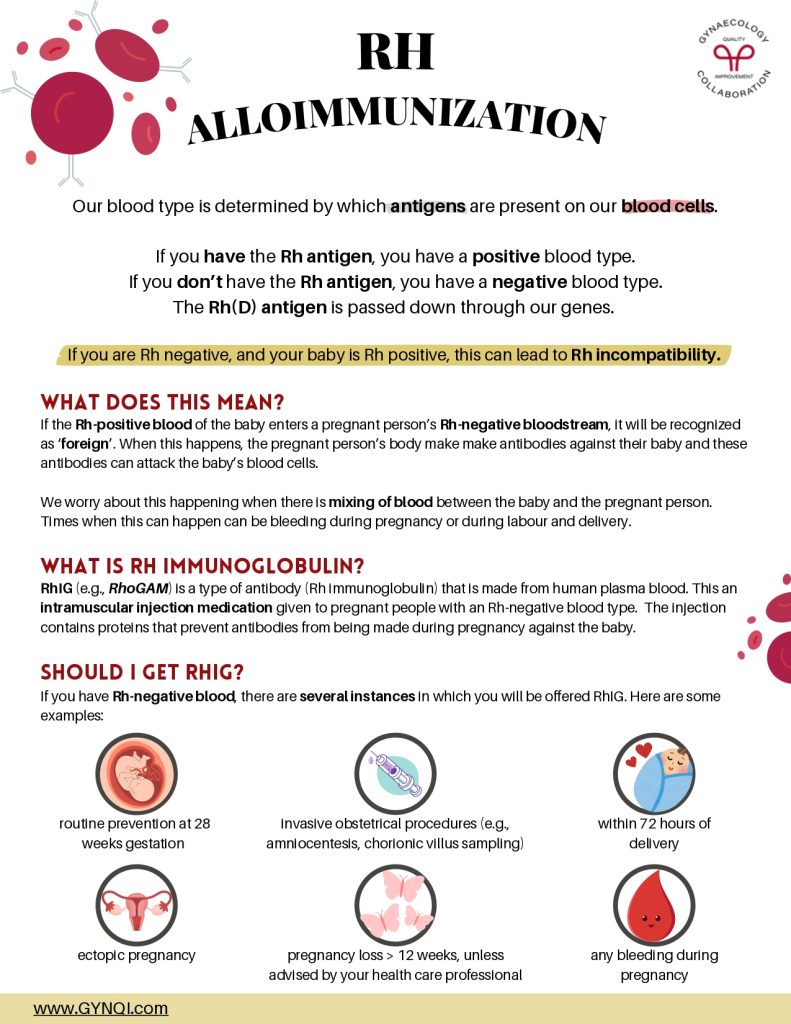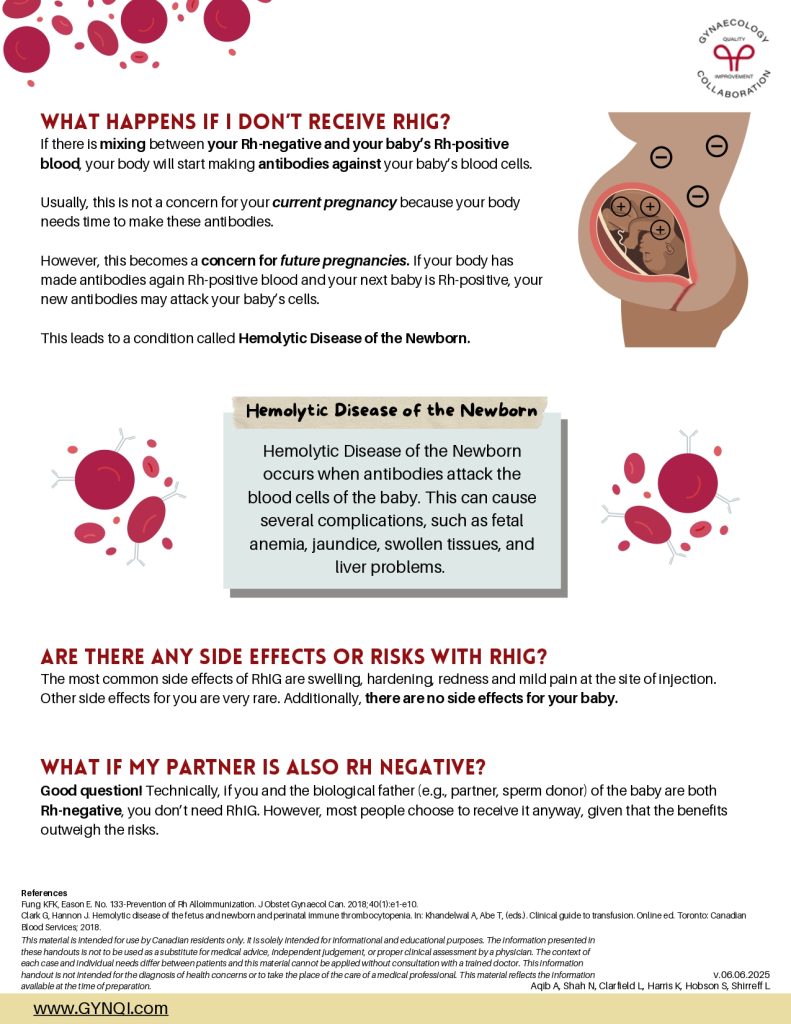
Rh Alloimunization
Our blood type is determined by which antigens are present on our blood cells.
If you have the Rh antigen, you have a positive blood type.
If you don’t have the Rh antigen, you have a negative blood type.
The Rh(D) antigen is passed down through our genes.
If you are Rh negative, and your baby is Rh positive, this can lead to Rh incompatibility.
What Does This Mean?
If the Rh-positive blood of the baby enters a pregnant person’s Rh-negative bloodstream, it will be recognized as ‘foreign’. When this happens, the pregnant person’s body makes antibodies against their baby’s blood, and these antibodies can attack the baby’s blood cells.
We worry about this happening when there is mixing of blood between the baby and the pregnant person. Times when this can happen can be bleeding during pregnancy or during labour and delivery.
Should I Get RhIG?
If you have Rh-negative blood, there are several instances in which you will be offered RhIG. Here are some examples:
- Routine prevention at 28 weeks gestation
- Invasive obstetrical procedures (e.g., amniocentesis, chorionic villus sampling)
- Within 72 hours of delivery
- Ectopic pregnancy
- Pregnancy loss >12 weeks, unless advised by your health care professional
- Any bleeding during pregnancy
What Happens if I Don’t Receive RhIG?
If there is mixing between your Rh-negative and your baby’s Rh-positive blood, your body will start making antibodies against your baby’s blood cells.
Usually, this is not a concern for your current pregnancy because your body needs time to make these antibodies.
However, this becomes a concern for future pregnancies. If your body has made antibodies against Rh-positive blood and your next baby is Rh-positive, your new antibodies may attack your baby’s cells.
This leads to a condition called Hemolytic Disease of the Newborn.
Hemolytic Disease of the Newborn
Hemolytic Disease of the Newborn occurs when antibodies attack the blood cells of the baby. This can cause several complications, such as fetal anemia, jaundice, swollen tissues, and liver problems.
Are There Any Side Effects or Risks with RhIG?
The most common side effects of RhIG are swelling, hardening, redness and mild pain at the site of injection. Other side effects for you are very rare. Additionally, there are no side effects for your baby.
What If My Partner is Also Rh Negative?
Good question! Technically, if you and the biological father (e.g., partner, sperm donor) of the baby are both Rh-negative, you don’t need RhIG. However, most people choose to receive it anyway, given that the benefits outweigh the risks.




